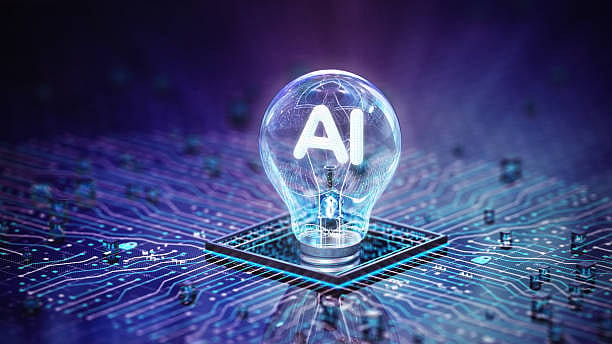Only 21% of Indian firms are AI-ready, but Agentic AI could change that: Cisco
ADVERTISEMENT

Only one in five Indian companies is equipped with the infrastructure needed to deploy artificial intelligence at scale, according to Cisco’s executive vice president and chief customer experience officer, Liz Centoni. While she believes India’s aspiration to lead in AI is “sky-high,” she says readiness on the ground remains low - and enterprises must act fast to modernise their infrastructure to stay competitive.
“According to Cisco’s AI Readiness Index, only 21% of Indian companies even have adequate GPUs and data centre capabilities to meet the demands of AI workloads,” Centoni said. “India’s aspiration is totally all the way here, but there’s significant infrastructure readiness that still needs to happen.”
Centoni said the next phase of enterprise AI will be shaped by Agentic AI - a step beyond generative AI - where systems don’t just create content but can act autonomously and complete multi-step goals. “Generative AI democratised access to creation. Agentic AI is about autonomy - the ability of systems to take actions with varying levels of human oversight,” she said.
The networking giant has already begun using agentic systems internally and for customers. For instance, in customer support, the company uses over 40 years of operational data to help engineers predict issues and recommend next best actions in real time. Another example is Cisco’s renewals agent, launched earlier this year, which autonomously handles repetitive workflows so teams can spend more time with clients.
But for enterprises to scale such applications, Centoni said the foundation must first be modernised. “The infrastructure that powers the internet age isn’t built for AI. It needs to be upgraded and secured,” she added, adding that Indian enterprises also need a mindset shift - moving from experimentation to defined, outcome-driven use cases.
“Over the last two years, it was okay to experiment. Now, every AI initiative must have a clear use case and measurable return,” she said. Centoni added that most AI projects fail because companies start with broad experimentation rather than well-defined goals or scalable deployment plans.
Cisco, she said, is now helping customers bridge this gap through AI advisory services, guiding them on model selection, use case definition, and infrastructure modernisation. “It’s not as easy as seeing a demo and deploying it the next day,” she said. “There’s a lot of groundwork that needs to happen first - and that’s where Indian enterprises need to accelerate.”
Addressing concerns around AI-related job losses, Centoni said the technology should be viewed as augmenting, not replacing, human roles. “AI will change how we work, but it doesn’t have to replace people,” she said. “There’s a human and cultural aspect to this shift; enterprises must bring employees along, not leave them behind.”
Cisco does not show evidence of significant layoffs specifically in India for 2025, but the company announced a broad restructuring and layoffs of approximately 4,000 jobs globally in late 2024 to focus on high-growth areas like AI, which may impact international operations. More recently, reported in August 2025, Cisco is expected to cut 221 jobs in its Bay Area (California) offices in October 2025.